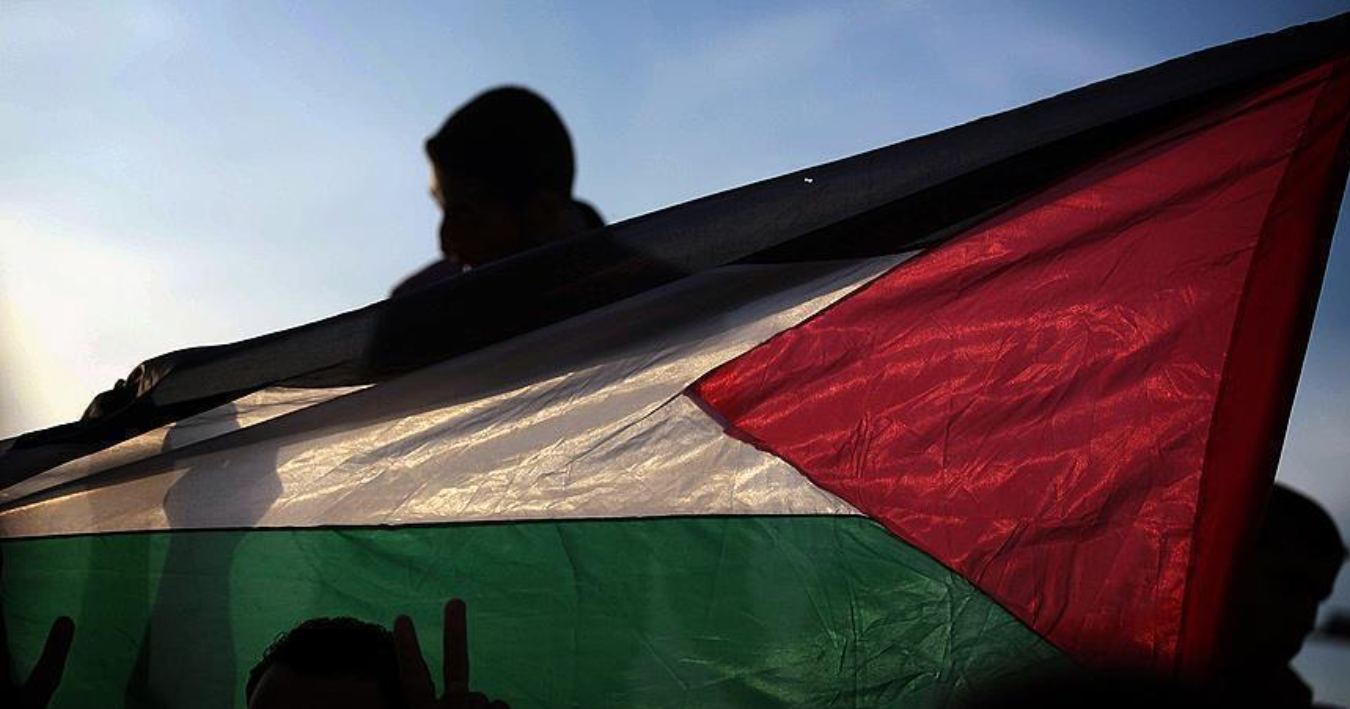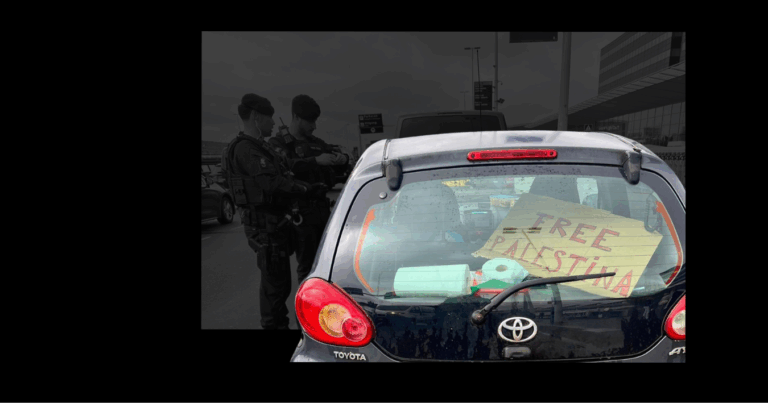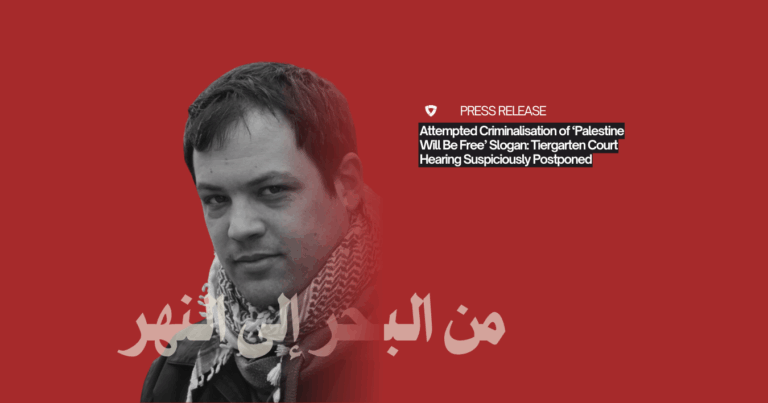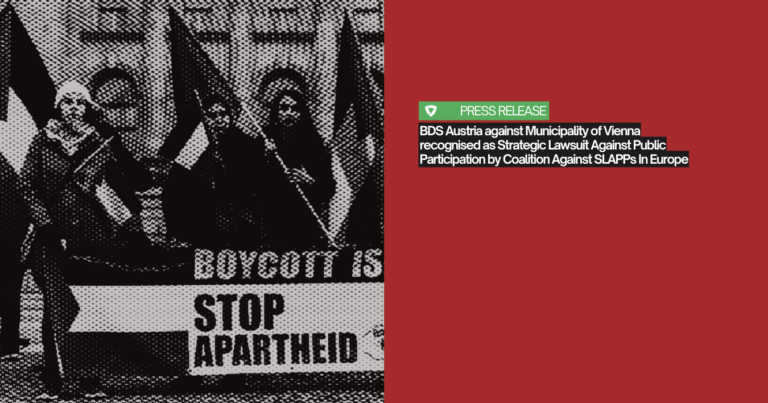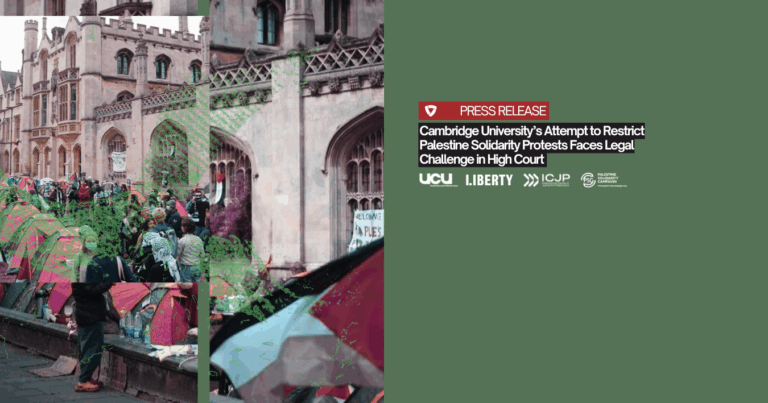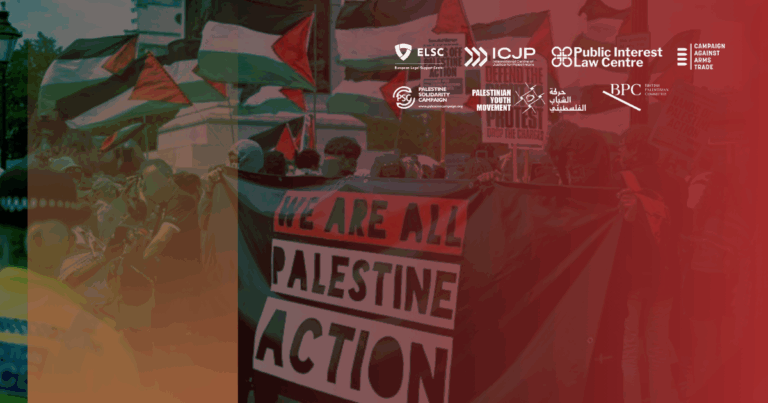NEW ELSC report: Europe’s Proscription of Palestine Solidarity
London, 12 August 2025 – Following recent UK court hearings on the ban of Palestine Action under anti-terrorism laws, and the arrest of over 500 protesters on 9 August 2025 for defying the proscription, the European Legal Support Center (ELSC) is publishing a comprehensive report, Europe’s Proscription of Palestine Solidarity, exposing the systematic criminalisation of Palestine solidarity groups across the continent.
Proscription – the legal designation of groups as ‘terrorist’ or unlawful, often without due process – has become a key tool in the repression of Palestine solidarity. The development of this tool of repression and the inconsistency of its enforcement constitute a deliberate tactic that aims at creating a climate of fear where the boundaries of ‘legality’ remain opaque. While some face arrest for merely holding placards opposing the Israeli genocide against Palestinians or chanting ‘From the River to the Sea’ at a protest, others are spared. This uncertainty – who will be targeted next, under what pretext – is the point.
To expose this systematic repression, the report draws on case studies from the UK, Germany, the Netherlands, and France, and offers a comparative analysis demonstrating how legal mechanisms – reminiscent of colonial emergency laws – are being weaponised to suppress political dissent and criminalise Palestine solidarity. The UK’s Terrorism Act (granting broad powers to ban groups deemed ‘terrorist’), Germany’s Associations Act (allowing the dissolution of groups accused of ‘undermining constitutional order’), and France’s dissolution powers (used against groups accused of ‘inciting hatred or violence’) function as legal tools that perpetuate racist, selective enforcement. They disproportionally target marginalised communities and their allies, under the guise of maintaining ‘public order’.
The research further demonstrates how this repression is enabled by the convergence of state actors, Zionist lobby groups, and arms manufacturers, reproducing historical patterns of political control and colonial violence. Just as colonial administrations framed liberation movements as existential threats, today’s states designate Palestine solidarity as ‘terrorism’, thereby justifying repression while protecting their complicity in the Israeli settler-colonial and ethno-nationalist project and its ongoing genocide in Palestine.
Belgium and Italy are now escalating similar efforts that could pave the way for future proscriptions. Yet the report underscores that the intensity of this crackdown reflects the growing power of Palestine solidarity movements. While these bans aim to chill broader support for Palestinian liberation, historical precedent suggests such repressive tactics often fail in the face of determined collective movements for justice.
This report serves both as documentation of alarming developments across Europe and as a reminder that standing in solidarity with oppressed and colonised peoples cannot be legislated away.
‘At the ELSC, we document repression not as a deterrent, but as a call to collective action. The escalating crackdown on Palestine solidarity across Europe is not inevitable; it is a challenge to be met with unity. The use of ‘anti-terror’ measures and other mechanisms of repression show us the fragility of power; how fiercely it clings to silence, and how easily it unravels when confronted by organised resistance. The bans, raids, and prosecutions detailed here are not signs of the movement’s weakness, but of its growing strength’.
This report was produced by the ELSC’s Monitor and Research Department.

